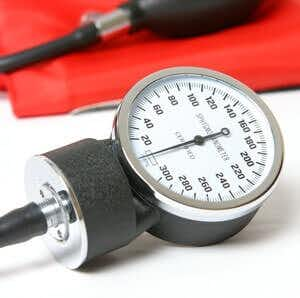
Nearly every health care visit starts the same way, with “vitals.” Someone puts you on a scale and writes down your weight, pops a thermometer in your mouth and registers your temperature and wraps a cuff around your arm and records your blood pressure.
These are the most fundamental measurements doctors use to assess your health status. If you have a fever, the clinician will look for infection. If you weigh more than you should, you’ll probably be admonished to watch your diet. But if your blood pressure is up, the provider will most likely prescribe a medication to lower it.
This has been the usual practice for over 50 years, since modern blood pressure drugs became available. There is good evidence that people whose blood pressure naturally tends to run around 120/80 have a better chance of avoiding strokes, heart attacks and possibly dementia.
When Do Blood Pressure Pills Make a Difference?
Studies in the 1960s and 1970s showed that lowering very high blood pressure with medicines could also reduce the likelihood of such disastrous outcomes. Since then, however, the level at which doctors became concerned about blood pressure and started treating it has been coming down.
Initially they focused primarily on diastolic pressure, the lower of the two numbers. That measures the background pressure between heart contractions. Scientists found that treating people whose diastolic pressure was over 90 or 100 was helpful (JAMA, Aug. 17, 1970). People with the highest blood pressure at the beginning of the study got the most benefit from treatment.
Over the years, though, with more and more drugs available, doctors began to aim at optimizing blood pressure for people with modestly elevated blood pressure. People with measurements of 145/90 took blood pressure pills so they could get closer to 120/80. Surprisingly, we don’t have the evidence to show whether that actually saves lives or spares people from strokes.
Could Too Many Blood Pressure Pills Cause Problems?
In fact, some new research suggests that reaching the target by piling on one drug after another may be counterproductive, especially in older people. French and Italian researchers collected data on elderly residents of nursing homes. Over a two-year time span, the individuals with systolic blood pressure under 130 due to taking multiple blood pressure pills were more likely to die (JAMA Internal Medicine, June, 2015). The investigators sound “a cautionary note regarding the safety of using combination antihypertensive therapy in frail elderly patients.”
A Tricky Dilemma
That leaves doctors with a difficult dilemma. Elderly people are at highest risk of dying from a heart attack, but just how aggressively should they be treated? More studies are needed to answer this question.
In the meantime, doctors are wrestling with recent guidelines that suggest people over 60 should get medication only when their systolic blood pressure is 150 or higher (JAMA, Feb. 5, 2014).
This goes against previous medical practice. Lowering blood pressure in older people with too many medications may impair cognitive function, though (JAMA Internal Medicine, April, 2015).
There is not much evidence to show that lowering blood pressure through exercise, weight control, meditation, breathing and other natural approaches will save lives, but side effects are minimal compared to drug therapy. To learn more about natural ways to get blood pressure down, you may wish to read our Guide to Blood Pressure Treatment.

